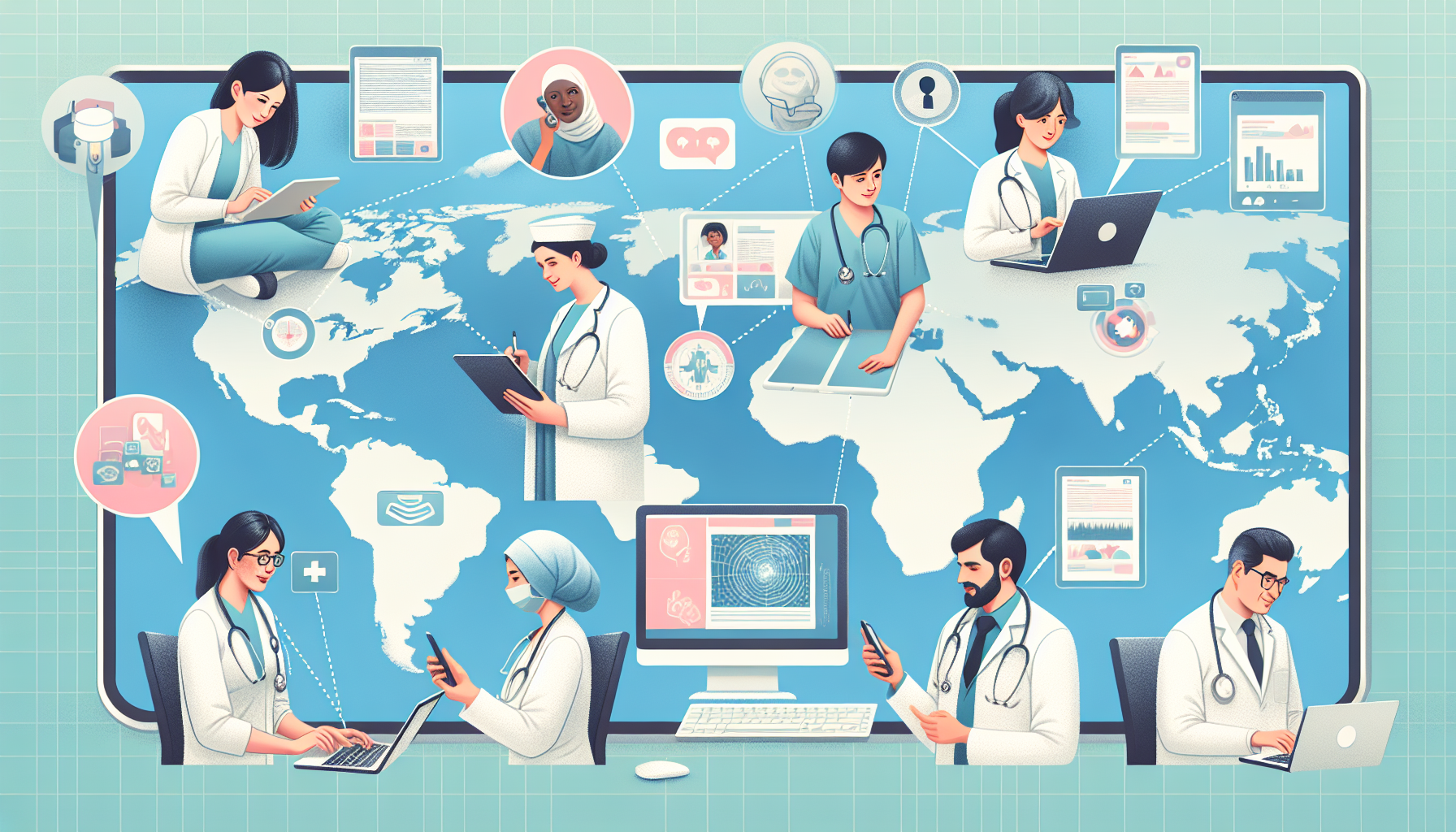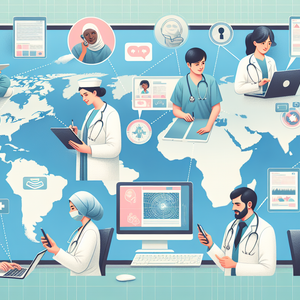Innovations in Health Careers: The Future of Work at UTSW

One of the most significant innovations in healthcare is the rise of telehealth, which has revolutionized how providers interact with patients. The COVID-19 pandemic accelerated the adoption of digital communication tools, enabling healthcare professionals to offer remote consultations and therapies, thereby enhancing access to care, especially in rural and underserved areas. At UTSW, the implementation of telehealth has led to the creation of new roles tailored to this emerging field. For example, telehealth coordinators are essential in facilitating virtual appointments, managing patient logistics, and ensuring seamless communication between patients and healthcare providers. These coordinators not only improve patient outcomes by providing timely interventions but also develop critical skills in technology utilization and effective patient management. Supporting the growth of telehealth is the role of remote patient monitors who track patients' health data through wearable devices and digital platforms. Their work ensures that healthcare teams can react promptly to any concerning changes in patients' conditions, further enhancing the quality of care provided.
Personalized Medicine: Tailoring Treatment to Individuals
Personalized medicine represents another groundbreaking trend at UTSW, focusing on customizing healthcare based on individual patient characteristics, particularly genetic information. By leveraging advancements in genomics, healthcare professionals can devise treatment plans that cater specifically to the unique needs of each patient. At UTSW, genetic counselors are pivotal in this innovative approach. They work closely with patients to interpret complex genetic data, providing insights into potential health risks and informing treatment options that align with patients’ genetic profiles. The demand for skilled professionals in genetics, bioinformatics, and patient education is on the rise as personalized medicine becomes more prevalent. This trend not only creates exciting career opportunities but also emphasizes the importance of continuous education and training for healthcare professionals in this rapidly evolving field.
Artificial Intelligence: Revolutionizing Healthcare Delivery
Artificial intelligence is reshaping the healthcare landscape, offering unprecedented opportunities to enhance diagnostics, streamline operations, and improve patient care. At UTSW, AI is being integrated into numerous facets of healthcare, from predictive analytics that inform clinical decision-making to operational efficiencies in hospital management. AI specialists and data scientists are now essential components of healthcare teams, responsible for developing algorithms that analyze vast amounts of medical data to identify patterns and anticipate patient outcomes. For instance, AI-driven tools are increasingly deployed in radiology, assisting in the interpretation of imaging studies. This allows radiologists to focus on more complex cases that require human expertise, ultimately improving diagnostic accuracy and patient safety. The incorporation of AI in healthcare underscores the need for professionals who can bridge the gap between technology and clinical practice. As healthcare systems become more data-driven, the demand for individuals skilled in AI, machine learning, and data analysis will continue to rise.
The future of work at UT Southwestern Medical Center is being profoundly influenced by innovations such as telehealth, personalized medicine, and artificial intelligence. These trends are reshaping how healthcare is delivered and creating a wealth of new career opportunities for aspiring healthcare professionals. As the industry continues to evolve, staying informed about these advancements will be crucial for anyone seeking to build a successful and fulfilling career at UTSW. By embracing these innovations and adapting to the changing landscape, healthcare professionals can position themselves at the forefront of a dynamic and impactful industry. As we look ahead, it is clear that the future of health careers is not only about providing care but also about leveraging technology and personalized approaches to enhance patient outcomes and experiences. UTSW stands as a shining example of how innovation can lead to improved healthcare delivery and expanded career opportunities in the ever-evolving world of health professions.
Telehealth Coordinator
Hospitals, outpatient clinics, telehealth companies like Amwell and Teladoc
Core Responsibilities
Facilitate virtual appointments and manage the logistics of telehealth services.
Ensure seamless communication between patients and healthcare providers through digital platforms.
Monitor patient satisfaction and gather feedback to enhance telehealth services.
Required Skills
Proficiency in telehealth technologies and software (e.g., Zoom for Healthcare, Doxy.me).
Strong organizational and communication skills to coordinate between multiple stakeholders.
Experience in healthcare administration or patient care roles.
Genetic Counselor
Genetic testing laboratories, hospitals, and research institutions
Core Responsibilities
Interpret genetic testing results and communicate findings to patients and families.
Provide risk assessment and counseling for hereditary conditions.
Collaborate with healthcare teams to develop personalized treatment plans based on genetic information.
Required Skills
Master’s degree in genetic counseling or a related field.
Strong analytical skills to interpret complex genetic data.
Excellent interpersonal skills for effective patient communication and support.
AI Data Scientist in Healthcare
Hospitals, health tech companies, and research organizations focused on AI in medicine
Core Responsibilities
Develop and implement machine learning algorithms to analyze healthcare data and improve patient outcomes.
Collaborate with clinical teams to identify data-driven solutions for operational challenges.
Conduct predictive analytics to enhance diagnostic accuracy and streamline workflows.
Required Skills
Proficiency in programming languages such as Python or R and experience with machine learning frameworks (e.g., TensorFlow, Scikit-learn).
Knowledge of healthcare data and relevant statistical methods.
Background in computer science, data science, or a related field.
Remote Patient Monitor Specialist
Home healthcare agencies, hospitals with telehealth programs, and remote monitoring service providers
Core Responsibilities
Utilize wearable devices and digital tools to track patient health data in real-time.
Analyze data to identify trends and alert healthcare providers of potential health issues.
Educate patients on the use of monitoring devices and ensure adherence to health protocols.
Required Skills
Familiarity with telemonitoring technologies and patient management systems.
Strong analytical skills to interpret health data and generate reports.
Excellent communication skills for patient interactions and education.
Telehealth Software Developer
Health tech startups, electronic health record (EHR) vendors, and hospitals developing in-house telehealth solutions
Core Responsibilities
Design, develop, and maintain telehealth applications that facilitate virtual healthcare delivery.
Collaborate with healthcare professionals to understand their needs and integrate feedback into software improvements.
Ensure compliance with healthcare regulations and data security standards in software solutions.
Required Skills
Experience in software development, particularly in healthcare IT (e.g., knowledge of HIPAA regulations).
Proficiency in programming languages such as Java, JavaScript, or C#.
Familiarity with user interface design to enhance user experience for patients and providers.


